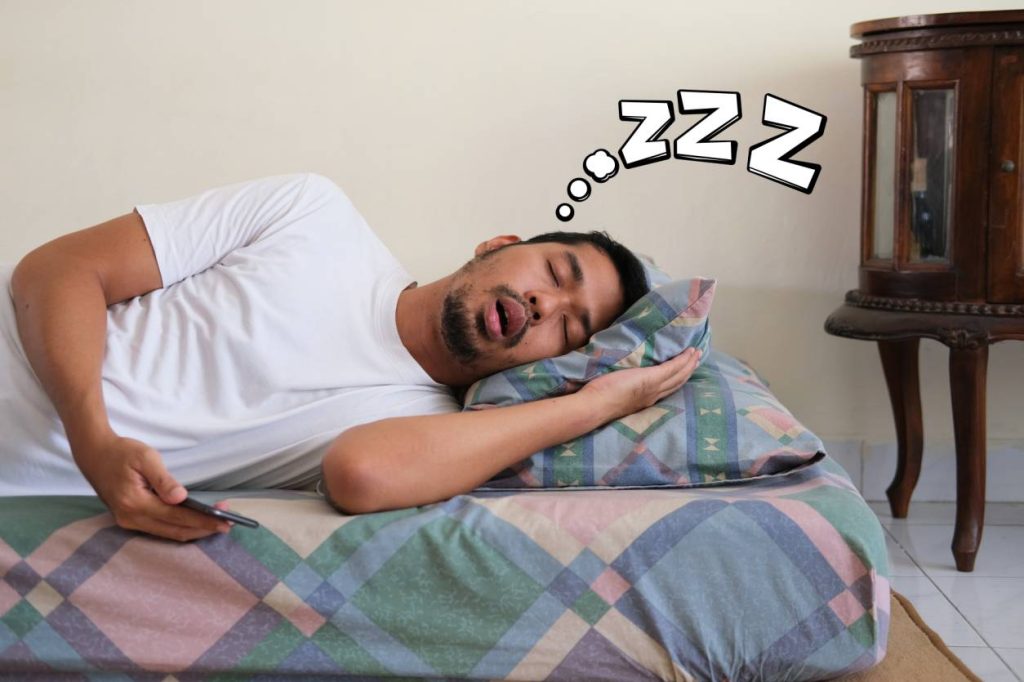
Sleep apnea can have serious consequences on your health, but an airway dentist plays a key role in early detection and treatment. From identifying airway-related signs during routine check-ups to offering non-invasive treatments like oral appliances, an airway-focused approach helps manage sleep apnea effectively. Let’s explore how dental care can improve your sleep health.
Sleep apnea is a sleep disorder where breathing repeatedly stops and starts during sleep. The most common type, obstructive sleep apnea (OSA), occurs when the throat muscles relax and block the airway. Central sleep apnea (CSA) happens when the brain fails to signal the muscles to breathe. Mixed sleep apnea (MSA) combines both OSA and CSA.
Sleep apnea is concerning because it can cause daytime fatigue, difficulty concentrating, and increase the risk of cardiovascular problems, including high blood pressure, heart attack, stroke, and diabetes. Early diagnosis and treatment are essential for managing the disorder and improving quality of life.
OSA is the most common form of sleep apnea. It occurs when the muscles at the back of the throat fail to keep the airway open, resulting in frequent breathing disruptions. Mild OSA is classified by an Apnea-Hypopnea Index (AHI) between 5 and 15. Moderate OSA requires individualised treatment and can significantly improve with appropriate management. Factors like obesity, anatomical abnormalities, and lifestyle choices such as smoking or alcohol consumption can increase the risk of OSA. Severe OSA is defined by an AHI greater than 30.
CSA is less common and occurs when the brain fails to signal the muscles to breathe. While the airway remains open, the body does not initiate breathing, leading to apneas. CSA is often associated with underlying health conditions such as heart failure, stroke, or the use of certain medications.
MSA, or complex sleep apnea syndrome, is a combination of OSA and CSA. It typically begins as OSA that is treated with CPAP therapy or other methods, but central apneas may persist even after the airway obstruction is resolved.
Untreated sleep apnea can lead to serious health problems, including:
Seeking early diagnosis and treatment can lead to:

Oral Appliance Therapy is a non-invasive treatment for sleep apnea that involves using custom-made devices to maintain an open airway during sleep by repositioning the jaw or tongue. This option is particularly suitable for individuals who may not tolerate CPAP therapy.
MADs are the primary oral appliances used for sleep apnea. They work by gently pushing the lower jaw forward, which prevents the airway from collapsing during sleep. These devices are adjustable, ensuring both comfort and effectiveness.
Oral appliances offer a comfortable and convenient alternative to CPAP therapy, improving sleep quality and overall health for many patients.
Importance of Consulting a Dentist for Initial Screening: Dentists play a crucial role in early sleep apnea detection. During routine check-ups, they can identify potential signs, such as worn teeth from grinding or reports of frequent snoring and daytime fatigue. By consulting a dentist, individuals can receive an initial screening that may indicate the need for further investigation.
Referral Process to a Physician: If a dentist suspects sleep apnea, they refer the patient to a physician for a formal diagnosis. This ensures the patient receives a comprehensive evaluation, typically involving a sleep study to confirm the presence and severity of sleep apnea. Collaboration between dental and medical professionals is essential in this approach.
Initial Sleep Assessment with Diagnostic Report: A sleep study, or polysomnography, is a comprehensive test to diagnose sleep disorders. Obstructive sleep apnea syndrome (OSAS) is a prevalent form that is often unrecognised or underdiagnosed, with significant clinical implications, including excessive daytime sleepiness. Patients spend the night at home for level 2 and level 3 PSG, where brain waves, blood oxygen levels, heart rate, and breathing patterns are monitored. This data helps diagnose sleep apnea and determine its severity, guiding the treatment plan.
Tailored Device and Treatment Plan: Once sleep apnea is diagnosed, dentists can fit patients with custom-made oral appliances to manage the condition. These devices, such as Mandibular Advancement Devices (MADs), are designed to keep the airway open during sleep. Dentists take detailed impression scans of the patient’s teeth and jaws to create a device that fits comfortably and effectively. At Hello Dental, treatment is paired with myofunctional therapy and lifestyle habit advice for a holistic approach.
Follow-Up Sleep Study for Enhanced Sleep Quality: After the initial fitting, patients often undergo a follow-up sleep study to evaluate the effectiveness of the oral appliance. This ensures the device works correctly and improves sleep quality. Dentists may adjust the device and provide ongoing support and monitoring to optimize treatment outcomes.
Dentists are vital in diagnosing and treating sleep apnea, allowing patients to improve their overall health and quality of life. Timely interventions, such as oral appliances, can improve sleep, reduce health risks, and promote emotional well-being.
At Hello Dental, our airway dentist provides personalised care tailored to each patient’s needs, ensuring effective management of sleep apnea. We also pair the treatment with myofunctional therapy and lifestyle habit advice for a more holistic approach, paving the way for healthier, more restful nights.
Copyright © 2024 Hello Dental Clinic. All Right Reserved.
475, Jalan Sultan Azlan Shah,
Taman Million,
51200 Kuala Lumpur
Mon-Fri: 09:00-19:00
Sat-Sun: 09:00-17:00
V06-02-05, Signature Retail Lot,
Sunway Velocity,
Lingkaran SV, Jalan Shelley,
55100 Cheras KL
Mon-Fri: 09:30-21:00
Sat-Sun: 09:00-18:00
2-02, Level 2, Wisma Conlay,
No.1, Jalan USJ 10/1,
Taipan Business Centre,
47620 Subang Jaya, Selangor
Mon, Tue, Fri: 10:00-18:30
Wed, Thu: 10:00-21:00
Sat, Sun: 09:00-15:30
G-8, Idaman Robertson,
No. 2, Jalan Robertson,
50150, Kuala Lumpur.
Mon, Thur: 11:00-20:00
Tue, Wed, Fri: 09:30-21:00
Sat, Sun: 10:00-19:00
No. 2-2 (Second Floor),
Jalan Solaris 5,
Solaris Mont Kiara,
50480 Kuala Lumpur
Mon-Fri: 10:00-19:00
Sat-Sun: 10:00-18:00